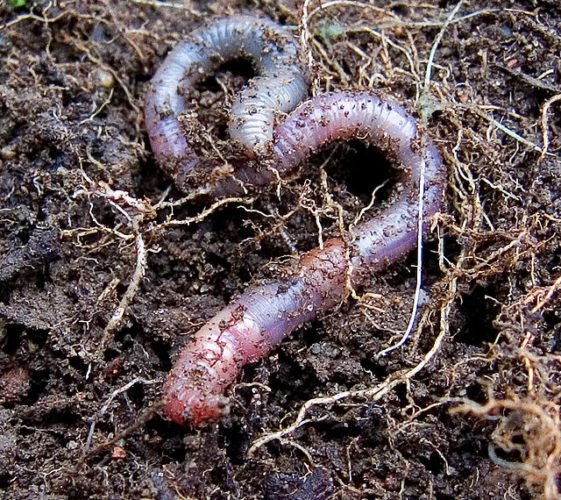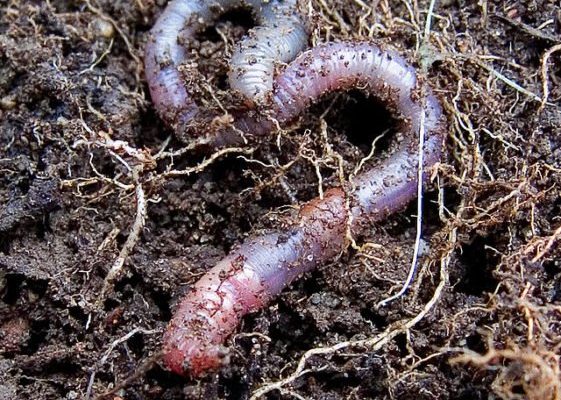
Earthworms play a crucial role in maintaining healthy soil. They break down organic material, mix it with the soil, and create pathways for air and water to move freely. Think of them as nature’s composters—turning kitchen scraps and fallen leaves into nutrient-dense compost that plants thrive on. By the end of this read, you’ll have a deeper understanding of just how much these little critters contribute to your garden’s success.
What Are Earthworms and Why Are They Important?
Earthworms are simple but fascinating creatures that belong to the phylum Annelida. They’re typically slender, elongated, and can range from a few inches to over a foot long. But what really sets them apart is their role in the ecosystem. They’re often referred to as **ecosystem engineers** because of their ability to modify their environment. They do this through their natural behavior—eating organic matter, burrowing through the soil, and excreting nutrient-rich casts.
You might be wondering how a creature so small can have such a big impact. When earthworms consume decaying leaves and other organic materials, they break it down and transform it into **vermicompost**—a potent fertilizer packed with nutrients. This process enriches the soil, allowing plants to absorb essential minerals more effectively. Plus, their tunneling action aerates the soil, letting water and oxygen penetrate more deeply.
Another fascinating fact is that earthworms help improve soil structure, which is vital for healthy plant growth. They can help enhance the soil’s ability to retain moisture and nutrients, key factors in gardening success. Think of earthworms as the maintenance crew, tirelessly working behind the scenes to ensure your garden flourishes.
How Earthworms Aerate Soil
One of the coolest things about earthworms is how they create tunnels in the soil as they move around. These tunnels serve a couple of essential purposes: they **aerate** the soil and help with water drainage. When it rains or when you water your garden, excess water can easily flow through these channels, preventing flooding. This is especially important in heavy clay soils that often hold too much water.
Aeration is vital for plant health because plants—like us—need air to thrive. Roots require oxygen to grow strong and healthy. If the soil is too compact, it suffocates roots and hinders their growth. By naturally aerating the soil, earthworms ensure that there’s enough oxygen for roots to breathe.
Here’s the thing: good soil aeration often leads to improved root growth, which can enhance plant health and yield. So, when you see an earthworm, remember it’s not just squiggling around—it’s actually helping your garden breathe.
Earthworm Castings: The Gold of the Garden
If you’ve ever dug in your garden and found dark, crumbly soil, chances are it’s rich with earthworm castings. These castings are essentially worm poop, but don’t let that deter you—it’s some of the best fertilizer you can give your soil.
Earthworm castings are packed with nutrients like nitrogen, phosphorus, and potassium, which are essential for plant growth. Plus, they contain beneficial microbes that help improve soil health. This means that using worm castings can lead to healthier plants and even increase your crop yield.
Using earthworm castings in your garden is easy. You can mix them into your soil before planting or use them as a top dressing around existing plants. Honestly, it’s like giving your plants a gourmet meal without all the hassle of traditional fertilizers.
Benefits of Vermicomposting
Vermicomposting is the process of using earthworms to break down organic waste into a nutrient-rich compost. It’s a fantastic way to reduce kitchen waste while boosting your garden’s health. Here’s how it works: you set up a worm bin, add kitchen scraps (like fruit peels and coffee grounds), and let the worms do their thing.
The benefits of vermicomposting are numerous:
- Rich Nutrients: The compost produced is dense with nutrients that enhance plant growth.
- Soil Improvement: It improves soil structure and water retention.
- Waste Reduction: It helps divert organic waste from landfills.
- Easy to Manage: Worm bins can be set up indoors or outdoors, making them versatile for any gardener.
Starting a vermicomposting project is simpler than you might think. All you need is a bin, some bedding (like shredded newspaper), a handful of worms, and food scraps. In a few weeks, you’ll have homemade compost to enrich your garden.
How to Encourage Earthworms in Your Garden
To reap the benefits of earthworms, you’ll want to create a welcoming environment for them. Here are some tips to encourage these garden allies:
1. **Avoid Chemical Pesticides**: Many pesticides can harm earthworms. Opt for organic gardening practices instead.
2. **Add Organic Matter**: Incorporate compost, leaf litter, or well-rotted manure into your soil. This provides food for earthworms and helps them thrive.
3. **Keep the Soil Moist**: Earthworms prefer moist conditions. Water your garden regularly, especially during dry spells.
4. **Mulch**: Adding organic mulch not only conserves moisture but also provides earthworms with a food source as it breaks down.
By following these tips, you can create an earthworm-friendly garden that will pay dividends in increased soil fertility and health.
The Role of Earthworms in Soil Health
Earthworms are more than just little composters; they play a vital role in maintaining soil health. They help break down organic matter, which is crucial for nutrient cycling. When plants die and decay, earthworms help return essential nutrients back into the soil, promoting a healthy ecosystem.
Moreover, their burrowing activity promotes the growth of beneficial soil microbes. These microbes work alongside earthworms to break down organic materials and release nutrients in a form that plants can easily absorb. It’s a beautiful cycle of life, ensuring that soils remain fertile and productive.
In summary, earthworms are essential for maintaining a vibrant garden ecosystem. With every twist and turn underground, they’re busily working to ensure your plants have everything they need to grow.
Incorporating earthworms into your gardening practices might seem simple, but their impact is profound. They improve soil fertility through nutrient recycling, aeration, and creating beneficial organic matter. You might think of them as tiny superheroes, tirelessly working to make your garden a better place.
So, the next time you spot an earthworm in your garden, take a moment to appreciate its hard work. By adjusting your gardening practices to foster a healthy environment for these little creatures, you’re not just benefiting your plants—you’re contributing to a sustainable ecosystem.
Let’s give a shout-out to the earthworms for all they do. With a little love and care, they can transform your garden into a thriving paradise!

